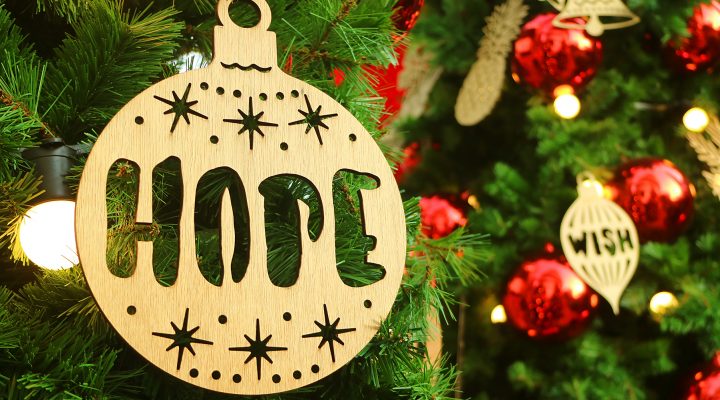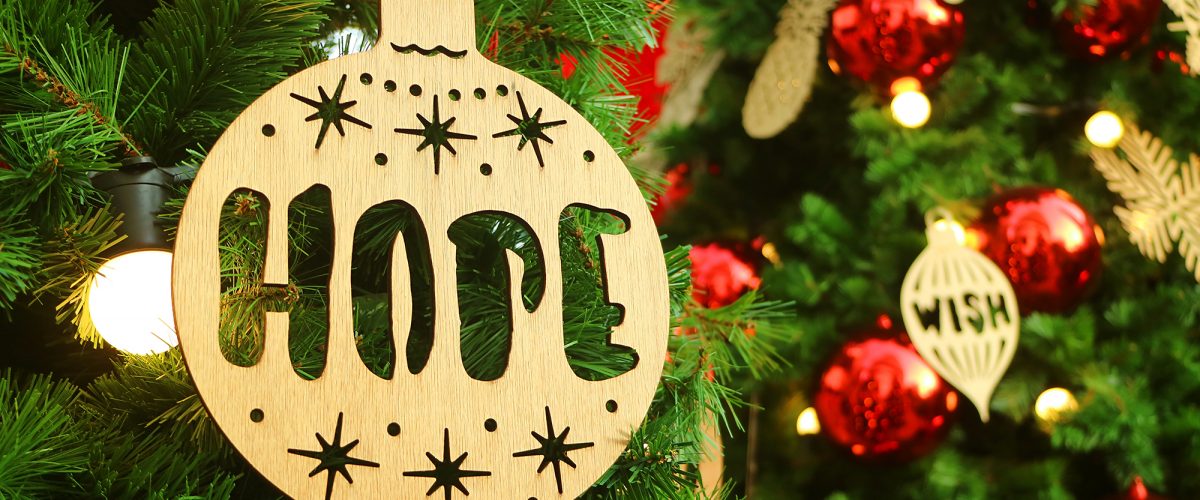When my sister, Olivia, graduated from college in 2018, the former mayor of our hometown was the commencement speaker. As she sat in her graduation robe, bobby pins stuck in her hair to keep her graduation hat from falling off, she listened to the speech as she waited patiently for her turn to walk across the stage.
Although this was a graduation ceremony, the speech was inspired by a Christmas story. And much to my sister’s surprise, she was the main character.
The story was about hope.

Mallory Challis
When my sister was a little girl, she attended a community Christmas event for children in our town, where the mayor was leading some of the Christmas activities. The mayor began talking with the children about what the true meaning of Christmas was, sharing with them her own wonderings about the feelings this season brings about.
During this interaction, my sister had a moment of realization.
“I figured it out,” she told the mayor. “I know what the true meaning of Christmas is. It’s hope.”
Sitting in her graduation robe, Olivia couldn’t believe it. Her 8-year-old self unintentionally inspired the speech she would hear at her own commencement. A moment of Christmas joy from her childhood was encouraging the graduating class of 2018 as they, full of excitement, fear and uncertainty, stepped off the graduation stage and into their post-grad futures.
This year, as I enter my first Christmas season post-graduation, I’ve been thinking about that message myself.
As I see story after story of tragic and unsettling events on the news, listen to beloved community members talk of sick or lost family and unpack tough topics in my seminary classes every day, it’s hard to have hope. The world is weary, and even during the Christmas season, reminded of the story of Jesus’ birth and filled with the joy of giving gifts, it is hard to find a thrill of hope in which to rejoice.
“When you grow up and must pay attention to all these things, the joy of Christmas tends to dwindle if you let it.”
When you grow up and must pay attention to all these things, the joy of Christmas tends to dwindle if you let it.
When I asked my sister if she still agreed with her young self, she had some thoughts. In pure Sunday school fashion, she told me it was simple: “I think Jesus is the meaning of Christmas. Trusting in Jesus is what gives us hope.”
We all see social media posts every Christmas proclaiming, “Jesus is the reason for the season,” many claiming it is essential we emphasize the presence of Christ in the beloved holiday. Some insist we fully spell out the holiday’s name rather than shortening it to “X-mas,” bypassing the full spelling of “Christ” while others grow angry at those who say, “Happy holidays” or “Season’s greetings” in place of “Merry Christmas,” upset at the idea other wintery holidays might capture some of the attention Jesus deserves.
This is not what she was talking about.
Rather than worrying about how to spell “Christmas” or the technicalities of how we greet each other during the holidays, she thinks we should focus on why we celebrate in the first place. After all, the day commemorates a moment in Christian history when our God entered the world as a little child to bring the hope of salvation to all humanity. While “Christmas” was not understood as a holiday for quite some time after Jesus’ birth, that very first night shined a bright light into the future.

Olivia Challis
Christmas is about the hope that a little baby, born in unconventional and socially marginalized circumstances, someday would bring about enormous change in the weary world.
Hope for change that we still need to experience today, Olivia says. “We all go through difficult times, and sometimes it feels like nobody can help. But Jesus can.”
“There’s comfort in knowing Jesus is there. The holiday is a reminder that he is,” she said. Without hope that Jesus is there for us, our world filled with worry, trouble and tragedy would be “terrifying.” And after a year of watching the worries and troubles of the world go by, Christmas is a reminder of the joy, love and peace to which we are called.
In a way, hope helps humans survive. It gives us the willpower to get through each day, even when it’s hard. Sometimes, hope is all a person or community has.
And Christmas is a season to reflect on that hope.
Mallory Challis is a master of divinity student at Wake Forest University School of Divinity. She is a graduate of Wingate University and a former Clemons Fellow with BNG.


